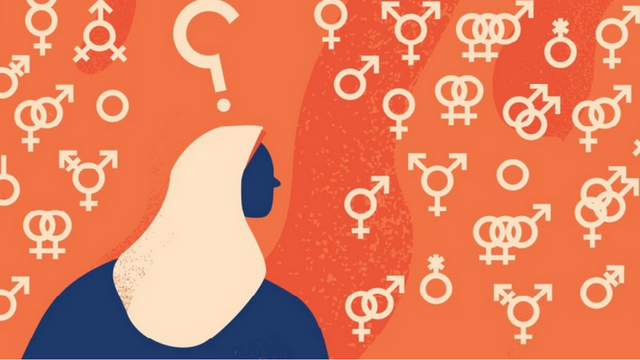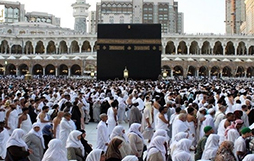Encountering LGBTQ issues as a Muslim in the West
Salman Al-Azami
Published: 2023-02-09 22:01:38 BdST | Updated: 2024-05-14 04:36:40 BdST
My article today is on a very sensitive issue that has been a taboo subject for Muslims, particularly in the West for a long time until recently. The issue is how we as Muslims should deal with LGBTQ issues. The controversies surrounding the World Cup in Qatar has brought Islam and LGBTQ issues at the centre of media narrative. However, this article is not about the Western hypocrisy on the coverage of the World Cup, but on the Muslim dilemma of how to face the constant LGBTQ questions that are surrounding us in Western societies. I would like to share some thoughts on this based on my own understanding and experience living in the West and raising young children in a society that is increasingly secular and progressive and with values that challenge some basic tenets of our religion. Therefore, it is important that we address this head on rather than brush it under the carpet as shying away from it will be unsustainable if we are to stay in this society.
Although this article is mostly catered for Muslims living in the West, many things discussed here apply to Muslims anywhere in the world. I don’t think a Muslim living in Bangladesh can say that this issue is completely irrelevant to them. There is a major attempt going on at the moment in South Asian popular culture, particularly in Bollywood which has huge following in Bangladesh, to normalise homosexuality.
TherecentlyreleasedUK census results on religionshow that more than 37% population in the UK do not have a religion and Christianity has gone down from over 73% in 2001 to below 59% in 2011 to just over 46% in 2021. Although the Muslim population has risen from 4.9% in 2011 to 6.5% in 2021, there is no denying the fact that the society is now more and more secular and the sector I work in, i.e., higher education, is very progressive, which is good for Muslims generally as there is less Islamophobia, but at the same time, this sector is almost aggressively pro LGBTQ, which is in direct conflict with our beliefs.
The word Islam means complete submission to Allah, which means every aspect of our life has to follow divine guidance. Our declaration of faith is a commitment we made to our Lord that we will not be guided by any other source but the orders of Allah and we will follow the orders as shown by Prophet Muhammad (SM). Verse 162 in chapter 6 in the Qur’an says:
Say, "Indeed, my prayer, my rites of sacrifice, my living and my dying are for Allāh, Lord of the worlds.
This means we don’t own our life – only Allah owns it. In sura Al-Baqarah, verse 208, Allah says:
“O believers, come to the full submission to God. Do not follow in the footsteps of Shaitan who is your acknowledged foe”.
Therefore, the whole purpose of our life is to obey Allah and His prophet, which is clearly mentioned in chapter 51, verse 56 in the Qur’an:
“I did not create jinn and humans except to worship Me”.
All these verses and many more and the whole life of Prophet Muhammad (SM) tell us that Muslims only worship Allah, follow the path of the Prophet and do not compromise with any worldly orders or trends. Otherwise, we will deviate and follow the path of Shaitan. If we want to enter Jannah, there is no other way than to completely submit to the will of Allah and never compromise with our religion.
This leads to the second point that is related to LGBTQ issues. There are two fundamental differences between Islam and the West, which includes Christianity, in the way this matter is dealt with. First, as the previous Quranic verses suggest, we do not own anything in this world and that includes our body. It is Allah who has created us as males and females, so our body belongs to Him, not us. Therefore, we can’t choose our gender and sexuality as they have been predetermined. On the other hand, in the Western values, our body belongs to us, so we can choose our gender and sexuality. These two ideas are completely opposed to each other. Secondly, while Christianity has been reformed many times over the years for which many Christian denominations including the Church of England have accepted homosexuality, Islam can’t be reformed as Allah perfected His religion through the Prophet Muhammad (SM). Allah SWT says in Sura Al-Maidah, verse 3:
“Today I have perfected your faith for you, completed My favour upon you, and chosen Islam as your way”.
Therefore, no matter how uncomfortable it is, we cannot change our religion to conform to modern societies. There are, of course, ‘Usul al Fiqh’, i.e., the science of Islamic Jurisprudence that scholars have applied over the last 1400 years on matters that we need to know to live in modern societies. These are decisions scholars make based on basic principles of Islam. Islam forbids homosexuality unequivocally, so there is no way we can reform Islam to accept this notion.
Having said all these, it is also important for us to understand that although homosexuality is a major sin, it is not a bigger sin than shirk or disobeying parents, which are clearly mentioned in sahih hadith as the two biggest sins. Sometimes we take these things beyond their remit and give them more importance while ignoring the importance of major sins like backbiting, which is dangerous for human relationships. For example, The Qur’an compares backbiting with eating the flesh of one’s brother, yet we indulge in this heinous act so much that we don’t even realise. The Qur’an tells us the story of Prophet Lut (AS) where the context was quite different from the LGBTQ people we see around us. The aggressive nature of the people of Lut (AS) is condemned in the Qur’an when they demanded that the prophet hands over the handsome young men who were visiting the prophet at that time not knowing that they were angels in disguise. We also need to distinguish between homosexual tendency and homosexual act, the latter being a private matter and what people do in their bedroom is none of our business.
We also know from authentic hadith that though Allah rewards us for good intentions, he doesn’t punish us for bad intentions until we acton them. I remember reading a heart-breaking story of a Muslim brother a few years ago who said that he was attracted to men but never acted on it due to it being forbidden in Islam. He said it was a test from Allah and he decided never to marry as he didn’t want to destroy the life of a woman, so he would remain a celibate with the hope that Allah will take that as passing the test and reward him for that. In modern LGBTQ terms, the brother was gay, but he didn’t commit a homosexual act in order to please Allah. This will give us a perspective on the matter and not judge people without knowing the facts.
We now live in a society which is becoming increasingly biased against anyone who do not conform and celebrate LGBTQ matters, which even some non-Muslim Western commentators call the ‘Rainbow Mafia’. Attending gay parades has become a symbol of progressiveness and many people feel obliged to attend such events in order to conform. A few years ago, my second daughter received a text from her friend in school asking her if she was joining the gay parade in Manchester. She replied saying that we had already planned our holidays. When she told me that I immediately told her that it was not an appropriate reply as it indicates that she would have attended the parade if we hadn’t planned the holiday at that time. Then I explained her why we, as Muslims, can’t celebrate this kind of event. I am glad that she understood it and never attended such events. However, I do acknowledge that discussing these issues is a major problem among Muslim parents living in the West.
I have already mentioned that the university sector in the UK is very much pro-LGBTQ. As I teach a module called ‘Religion in the Media’ I do bring up this issue in my teaching, which is not an easy thing to talk about with students whose mindsets are completely set in a particularly way on these matters. I can share one incident that happened last year. I was talking to my students on this issue in a seminar, and when I told them that as a Muslim I believe that homosexuality is a sin, they immediately thought that I was homophobic. It took me almost half an hour to convince them that considering this a sin and being homophobic are completely different. Then they understood and some of my gay students went to the extent saying that they found me the most helpful teacher in our English Language team and concluded that ‘homophobic’ is the last thing they could say about me. Interestingly, one of my dissertation supervisees last year, who is gay, emailed me last week saying how grateful he was for my help. He was a brilliant student, and in fact it was I who recommended him to get the best student award.
Therefore, the question arises as to how should we approach this phenomenon while interacting with non-Muslims in Western societies like ours? How do we handle this matter? I have a few pieces of advice based on my own understanding and experience.
- As Muslims, we consider it as a sin, and it stops here. There is no way a Muslim can be homophobic as we don’t treat anyone wrongly. We treat everyone equally as fellow human beings.
- That doesn’t mean we have to celebrate LGBTQ issues. The best is to remain quiet on these unless we are pushed to celebrate this or asked about it.
- We need to remember our identity as Muslims and under no circumstances we should compromise with our identity and our religion just to conform. At the same time, we need to be pragmatic in our conversations and not hurt others. As I explained to my students and all of them were fully convinced, we can explain our position clearly without getting into debate, and it is our behaviours towards LGBTQ people that will prove that we follow our religion, but we are not homophobic.
- As Muslims we bear the responsibility to represent our religion through our conduct and speech so that people like us as good human beings. This is the biggest weapon of a Muslim when interacting with non-Muslims and this is exactly what our beloved Prophet (SM) did in his entire life. May Allah enable us to conduct ourselves in such a way that we do not compromise our religion but also represent Islam properly during our interactions with non-Muslims, Ameen!
(Dr Salman Al-Azami is a British Bangladeshi author, linguist and academic.)
সকল প্রকাশিত/প্রচারিত কোনো সংবাদ, তথ্য, ছবি, আলোকচিত্র, রেখাচিত্র, ভিডিওচিত্র, অডিও কনটেন্ট কপিরাইট আইনে পূর্বানুমতি ছাড়া ব্যবহার করা যাবে না।





আপনার মূল্যবান মতামত দিন: